
All categories
Featured selections
Trade Assurance
Buyer Central
Help Center
Get the app
Become a supplier

(1881 products available)

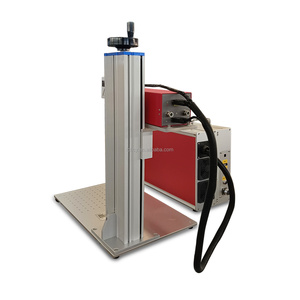






























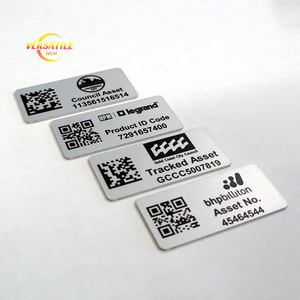



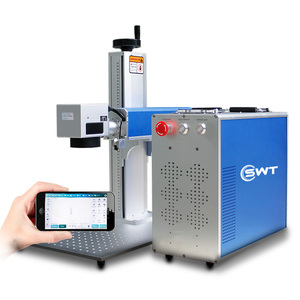

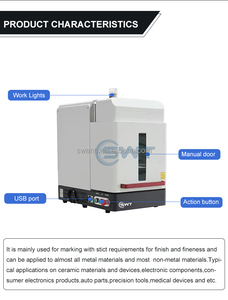


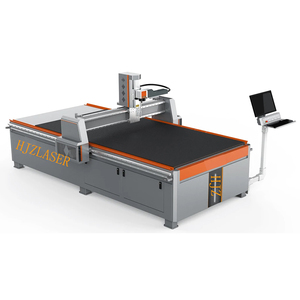



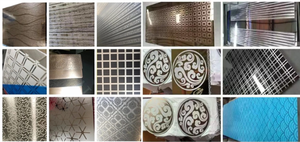

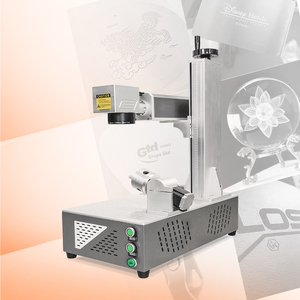


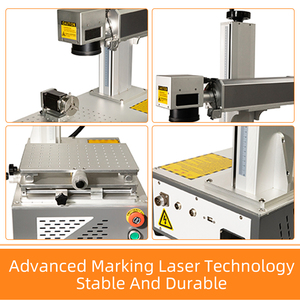


remove laser etching have gained significant attention in the realm of industrial maintenance and restoration, offering a cutting-edge solution for surface cleaning. Utilizing concentrated laser beams, these machines effectively remove rust, paint, contaminants, and residues from various surfaces without damaging the underlying material. The technology behind remove laser etching is rooted in precision and efficiency, providing a non-abrasive, eco-friendly alternative to traditional cleaning methods. As industries increasingly seek sustainable and cost-effective solutions, the adoption of remove laser etching is expanding, driven by their versatility and adaptability across diverse applications.
There are several types of remove laser etching available, each designed to cater to specific cleaning needs and surface types. Portable laser cleaning systems are compact and easy to maneuver, ideal for on-site operations and challenging spaces. Industrial-grade remove laser etching are larger and more powerful, suitable for extensive cleaning tasks across large areas. Automated robotic systems offer precision and consistency, perfect for repetitive cleaning tasks in manufacturing environments. Additionally, handheld laser cleaning machines provide flexibility for detailed work and intricate surfaces. The choice of remove laser etching type depends on factors such as the scale of the operation, surface material, and specific cleaning requirements.
remove laser etching are equipped with various functions and features that enhance their cleaning capabilities. These machines are known for their ability to precisely target specific areas, minimizing waste and ensuring efficient use of energy. Features such as adjustable power settings allow operators to customize the intensity of the laser beam, optimizing the cleaning process for different materials. Advanced cooling systems in remove laser etching prevent overheating, ensuring consistent performance during prolonged use. Safety mechanisms, including emergency stop buttons and protective shields, are integrated to safeguard operators and equipment. The versatility of remove laser etching is further enhanced by interchangeable nozzles and lenses, allowing for tailored cleaning solutions.
The technical specifications of remove laser etching are crucial for understanding their performance and suitability for specific tasks. Typically, these machines feature power capabilities ranging from 30 to 1000 watts, providing flexibility for various cleaning applications. The wavelength of the laser beam is often set between 1064 nm to 1080 nm, ensuring efficient absorption by different surface materials. remove laser etching can achieve cleaning speeds of up to 15 square meters per hour, depending on the power and configuration. The machines are designed to operate within ambient temperature ranges of 0°C to 40°C, accommodating diverse environmental conditions. Additionally, remove laser etching often incorporate user-friendly interfaces and digital controls, facilitating ease of use and precision.
The applications for remove laser etching are vast and varied, encompassing industries such as automotive, aerospace, manufacturing, and preservation. In the automotive industry, these machines are used to clean engine components and body panels, removing rust and paint efficiently. Aerospace applications involve the cleaning of aircraft surfaces and components, ensuring optimal performance and longevity. Manufacturing sectors utilize remove laser etching to maintain machinery and equipment, enhancing operational efficiency and reducing downtime. Preservation projects benefit from the non-abrasive nature of laser cleaning, protecting historical artifacts and delicate surfaces. The adaptability of remove laser etching makes them suitable for both large-scale industrial operations and intricate restoration tasks.
Selecting the appropriate remove laser etching involves several critical considerations that ensure optimal performance and efficiency. The first step is to assess the specific cleaning requirements, such as the type of material being cleaned and the extent of contamination. Different surfaces may require different power levels and wavelengths offered by various remove laser etching. Additionally, the operational environment, whether indoors or outdoors, should be taken into account to determine the machine's durability and adaptability. Understanding these factors helps in choosing a remove laser etching that meets the precise needs of the task at hand.
Another significant aspect is the ease of use and maintenance of the remove laser etching. Machines with user-friendly interfaces and intuitive controls facilitate efficient operation, reducing the learning curve for operators. Furthermore, maintenance requirements should be minimal, with readily available parts and support services. This ensures that the remove laser etching remains in optimal condition, minimizing downtime and enhancing productivity. Evaluating these practical considerations is essential for businesses aiming to integrate remove laser etching into their operations seamlessly.
Energy consumption is a crucial factor when evaluating remove laser etching. Machines with adjustable power settings allow operators to optimize energy use based on the cleaning task, reducing unnecessary power expenditure. This not only lowers operational costs but also aligns with sustainability goals by minimizing energy waste. Understanding the power efficiency of a remove laser etching can significantly impact its long-term cost-effectiveness.
The mobility of remove laser etching is particularly important for applications requiring frequent relocation or on-site operations. Portable models offer flexibility and ease of transport, making them suitable for cleaning tasks in diverse locations. In contrast, stationary models may provide more power but could be less adaptable to dynamic environments. Considering the mobility needs of your operation is vital when selecting a remove laser etching.
Yes, remove laser etching can be effectively used on sensitive surfaces, provided they are equipped with appropriate settings and features. The non-abrasive nature of laser cleaning makes it ideal for delicate materials, such as historical artifacts or fragile metals. It is essential to choose a remove laser etching with customizable power and beam settings to ensure gentle yet effective cleaning of sensitive surfaces.
Safety is a paramount concern when operating remove laser etching. Many machines come with built-in safety features such as emergency stop buttons, protective shields, and laser beam enclosures to prevent accidental exposure. Additionally, operators should be trained in handling the equipment safely and using personal protective equipment (PPE) as necessary. Ensuring these safety measures are in place is crucial for safe operation of remove laser etching.
Compared to traditional cleaning methods, remove laser etching offers numerous advantages, including precision, efficiency, and environmental friendliness. Unlike chemical or abrasive cleaning, laser technology targets contaminants without affecting the underlying material. This precision reduces waste and the need for additional cleaning agents, making remove laser etching a more sustainable option. Understanding these benefits can help businesses transition to more advanced and eco-friendly cleaning solutions.